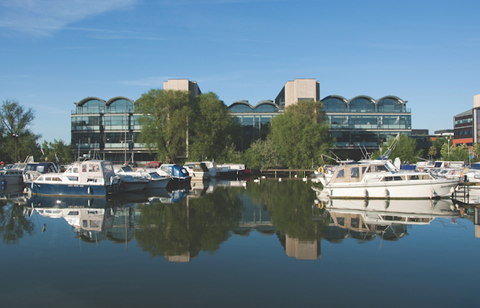
For the University of Lincoln, involvement with the community is the central focus for its corporate social responsibility (CSR) agenda; its 2,000 employees have access to a bank of 150 'give-back days' a year, to use however they see fit in order to promote a positive local impact.
Rosie Damarell, reward officer at the University of Lincoln, says: “We don’t want staff to feel like they have to take annual leave to give back to charity.”
Employees' chosen activities might involve taking up a volunteer position at a local food bank or hospice, or a becoming a leader for schools’ Duke of Edinburgh awards. Staff have also helped to clear up the river on which the university sits.
The university runs a number of schemes to both support its CSR agenda and boost employee wellbeing. For example, it promotes a bike hire scheme to reduce emissions in the city, however this also encourages employees to adopt a healthier commute to work.
At the end of 2018, the university became one of the first to receive a gold award in the Armed Forces Employer Recognition scheme, recognising the work it does with local armed forces and the relevant support it provides to employees.
Lincoln has numerous RAF bases and many employees are reservists, or have family members in the armed forces. Employees who are reservists receive an extra 10 days of paid leave each year for statutory training and are able to access five additional days to attend armed forces events. Employees with family members in the forces also receive five additional days of leave.
“If [an employee’s] partner is deployed, that’s a significant impact on them physically, emotionally and mentally,” says Damarell. “We don’t want them to feel under stress, so if they need a day off to adjust or take the children to school, it just gives them an extra bit of time.”
The university has a strong focus on being engaged and involved with the local community, recognising the importance of offering benefits that support employee wellbeing.
“Being an employer has changed from being responsible for an individual from nine to five; we have more of a responsibility now,” adds Damarell. "We need to know what happens to them as a whole. That means we have to offer benefits that support a whole person, we have to make sure there’s something there for all areas, whether it's social or financial, for example. It’s all part of wellbeing as a big picture.”
Read more...
















